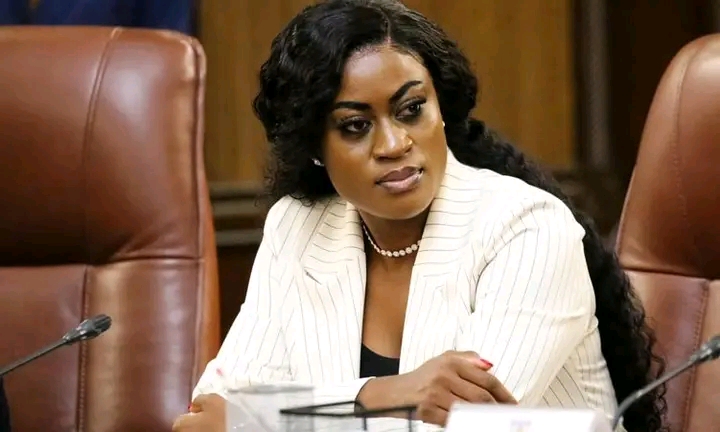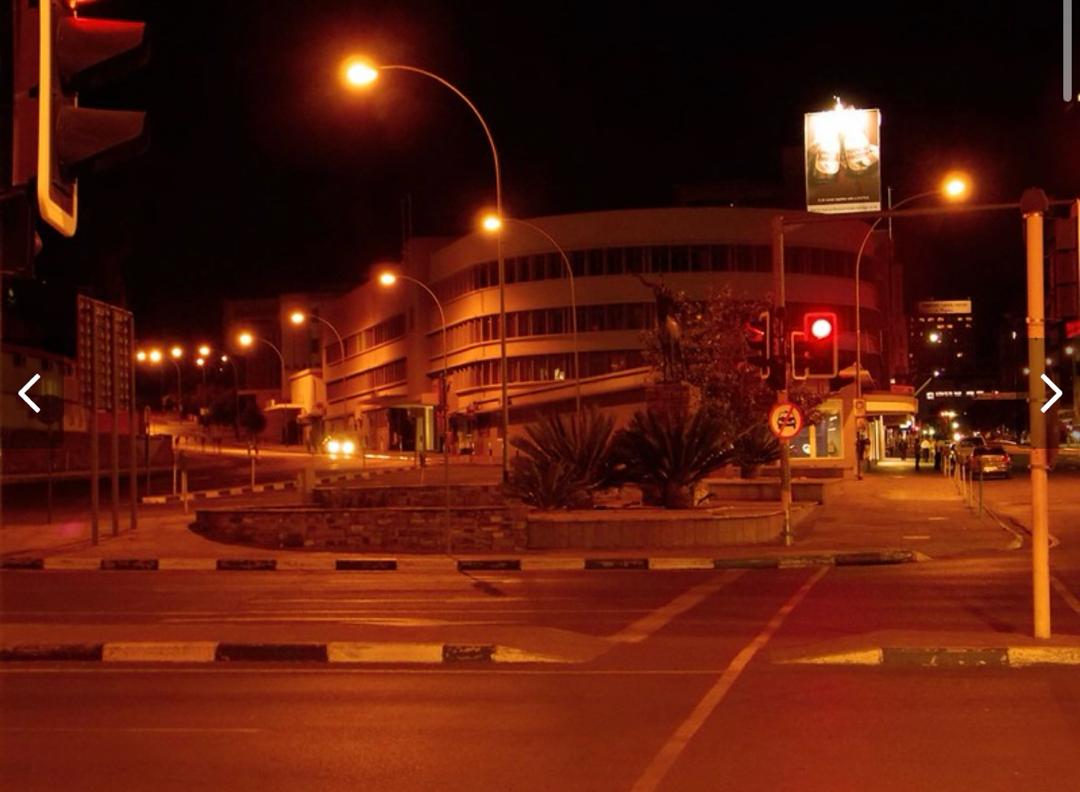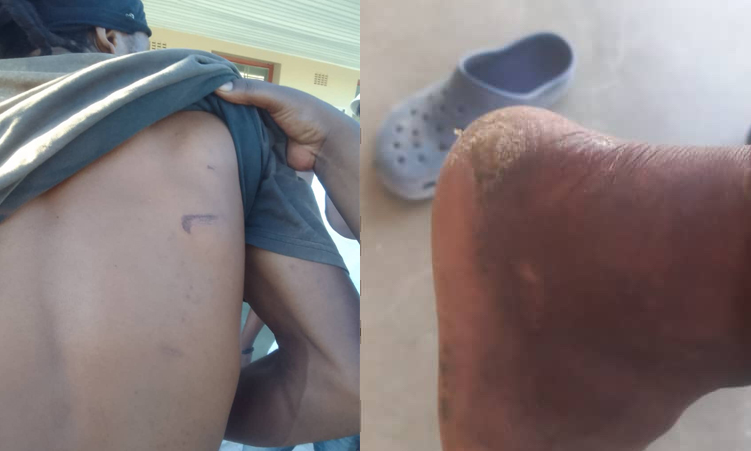LAUGHTER is the best medicine – that’s the motto of clinic clowns who cheer up hospital patients across the world.
This movement was started in America by Dr Hunter ‘Patch’ Adams, a doctor who soon discovered that especially children’s health improved dramatically the more they laughed. So he put on a bright red clown’s nose and the Clinic Clowns movement was born.Here in Namibia the Clinic Clowns organisation was founded in 2005 by Doris Meyer and Aideen Bahr.When Meyer saw the movie ‘Patch Adams’ she immediately thought that she would like to introduce this concept to Namibia.She loves organising and helping people and says the idea was very well received in the country.In the beginning the Namibian Clinic Clowns movement used the services of performance artists working for the Avalon Events Company but soon a few specialist clinic clowns were trained, as there is a vast difference between a circus clown and a clinic clown.Circus clowns are bright, loud, colourful and very energetic.They have a fixed programme that they perform in front of huge crowds.The clinic clown is discreet, silent, sensitive and must be able to judge and react to a patient’s mood and frame of mind.The face of a clinic clown must be visible to the patient.They improvise and adapt to each patient individually.A clinic clown must have the ability to sum up a patient within seconds of entering the room, as they only spend about 10 minutes with each patient.The bright red clown’s nose is a clinic clown’s most important prop and serves as a “laughter button”.Clinic clowns always work in pairs so that they can play with each other and in doing so entice the patient to participate and join in the fun.”It is so rewarding when you see a patient’s eyes light up and they start to laugh.For that short moment you know that they forgot all their problems, their environment and their circumstances.They are happy,” says Meyer.There is one adult cancer patient who phones the Clinic Clowns every time she has to go to hospital for chemotherapy.The clowns accompany her and take her mind off the therapy while the nurses administer it.This, according to Meyer, they do gladly, because they are there to help all patients.Laughter releases endorphins or “happy hormones”, which in turn increase the blood pressure, strengthen the immune system and create a general feeling of wellbeing which all contribute to the patients’ recovery.The clowns arrange their visits with the ward sister of the hospital, who also briefs them on the patients.There are currently only 10 clinic clowns in Windhoek and thus they cannot visit the hospitals as often as they would like to.Ideally, each hospital should be visited on the same day each week so that long-term patients have something to look forward to.The clowns always try to visit young patients in the afternoon when their families are present so that they too can relax a bit and enjoy the laughter and fun.For many parents, having a sick child is very difficult and often parents and children do not know who to talk to about the illness.The clowns can say to a young cancer patient who has lost all her hair because of chemotherapy: “Hey, cool hairdo, at least you do not have to wash it”.This often helps people to start talking about their illness and their fears, says Meyer.Clinic clowns not only brighten up the day of the patients, but the entire hospital staff, from the cleaners to the doctors, enjoy a visit and a laugh.”The nurses in the one hospital we visit stop us when we come and then we fist cheer up the staff before visiting the patients.After we were there everybody is more relaxed and it is a wonderful stress reliever,” Meyer adds.Due to personal reasons, Meyer is now handing over the reins of the Clinic Clowns to Caryn Feldmann.”Caryn and her group of clowns are all very young and energetic and I believe that the Clinic Clowns movement here in Namibia can only grow under this new leadership,” Meyer told The Namibian.Feldmann hopes to grow the movement so that in future they can offer laughter therapy courses to companies to earn some money to train more clowns.The clinic clowns’ work does not stop with making people laugh.They help out wherever they identify a pressing need in a hospital.At the moment they are renovating the children’s cancer ward in the Windhoek Central Hospital with money they raised.New blinds, carpets and a fresh coat of paint have all been organised and soon the children will have more to smile about.People who want to assist the Clinic Clowns, or to make use of their services, can phone Caryn at 081 208 9622.So he put on a bright red clown’s nose and the Clinic Clowns movement was born.Here in Namibia the Clinic Clowns organisation was founded in 2005 by Doris Meyer and Aideen Bahr.When Meyer saw the movie ‘Patch Adams’ she immediately thought that she would like to introduce this concept to Namibia.She loves organising and helping people and says the idea was very well received in the country.In the beginning the Namibian Clinic Clowns movement used the services of performance artists working for the Avalon Events Company but soon a few specialist clinic clowns were trained, as there is a vast difference between a circus clown and a clinic clown.Circus clowns are bright, loud, colourful and very energetic.They have a fixed programme that they perform in front of huge crowds.The clinic clown is discreet, silent, sensitive and must be able to judge and react to a patient’s mood and frame of mind.The face of a clinic clown must be visible to the patient.They improvise and adapt to each patient individually.A clinic clown must have the ability to sum up a patient within seconds of entering the room, as they only spend about 10 minutes with each patient.The bright red clown’s nose is a clinic clown’s most important prop and serves as a “laughter button”.Clinic clowns always work in pairs so that they can play with each other and in doing so entice the patient to participate and join in the fun.”It is so rewarding when you see a patient’s eyes light up and they start to laugh.For that short moment you know that they forgot all their problems, their environment and their circumstances.They are happy,” says Meyer.There is one adult cancer patient who phones the Clinic Clowns every time she has to go to hospital for chemotherapy.The clowns accompany her and take her mind off the therapy while the nurses administer it.This, according to Meyer, they do gladly, because they are there to help all patients.Laughter releases endorphins or “happy hormones”, which in turn increase the blood pressure, strengthen the immune system and create a general feeling of wellbeing which all contribute to the patients’ recovery.The clowns arrange their visits with the ward sister of the hospital, who also briefs them on the patients.There are currently only 10 clinic clowns in Windhoek and thus they cannot visit the hospitals as often as they would like to.Ideally, each hospital should be visited on the same day each week so that long-term patients have something to look forward to.The clowns always try to visit young patients in the afternoon when their families are present so that they too can relax a bit and enjoy the laughter and fun.For many parents, having a sick child is very difficult and often parents and children do not know who to talk to about the illness.The clowns can say to a young cancer patient who has lost all her hair because of chemotherapy: “Hey, cool hairdo, at least you do not have to wash it”.This often helps people to start talking about their illness and their fears, says Meyer.Clinic clowns not only brighten up the day of the patients, but the entire hospital staff, from the cleaners to the doctors, enjoy a visit and a laugh.”The nurses in the one hospital we visit stop us when we come and then we fist cheer up the staff before visiting the patients.After we were there everybody is more relaxed and it is a wonderful stress reliever,” Meyer adds.Due to personal reasons, Meyer is now handing over the reins of the Clinic Clowns to Caryn Feldmann.”Caryn and her group of clowns are all very young and energetic and I believe that the Clinic Clowns movement here in Namibia can only grow under this new leadership,” Meyer told The Namibian.Feldmann hopes to grow the movement so that in future they can offer laughter therapy courses to companies to earn some money to train more clowns.The clinic clowns’ work does not stop with making people laugh.They help out wherever they identify a pressing need in a hospital.At the moment they are renovating the children’s cancer ward in the Windhoek Central Hospital with money they raised.New blinds, carpets and a fresh coat of paint have all been organised and soon the children will have more to smile about.People who want to assist the Clinic Clowns, or to make use of their services, can phone Caryn at 081 208 9622.
Stay informed with The Namibian – your source for credible journalism. Get in-depth reporting and opinions for
only N$85 a month. Invest in journalism, invest in democracy –
Subscribe Now!










